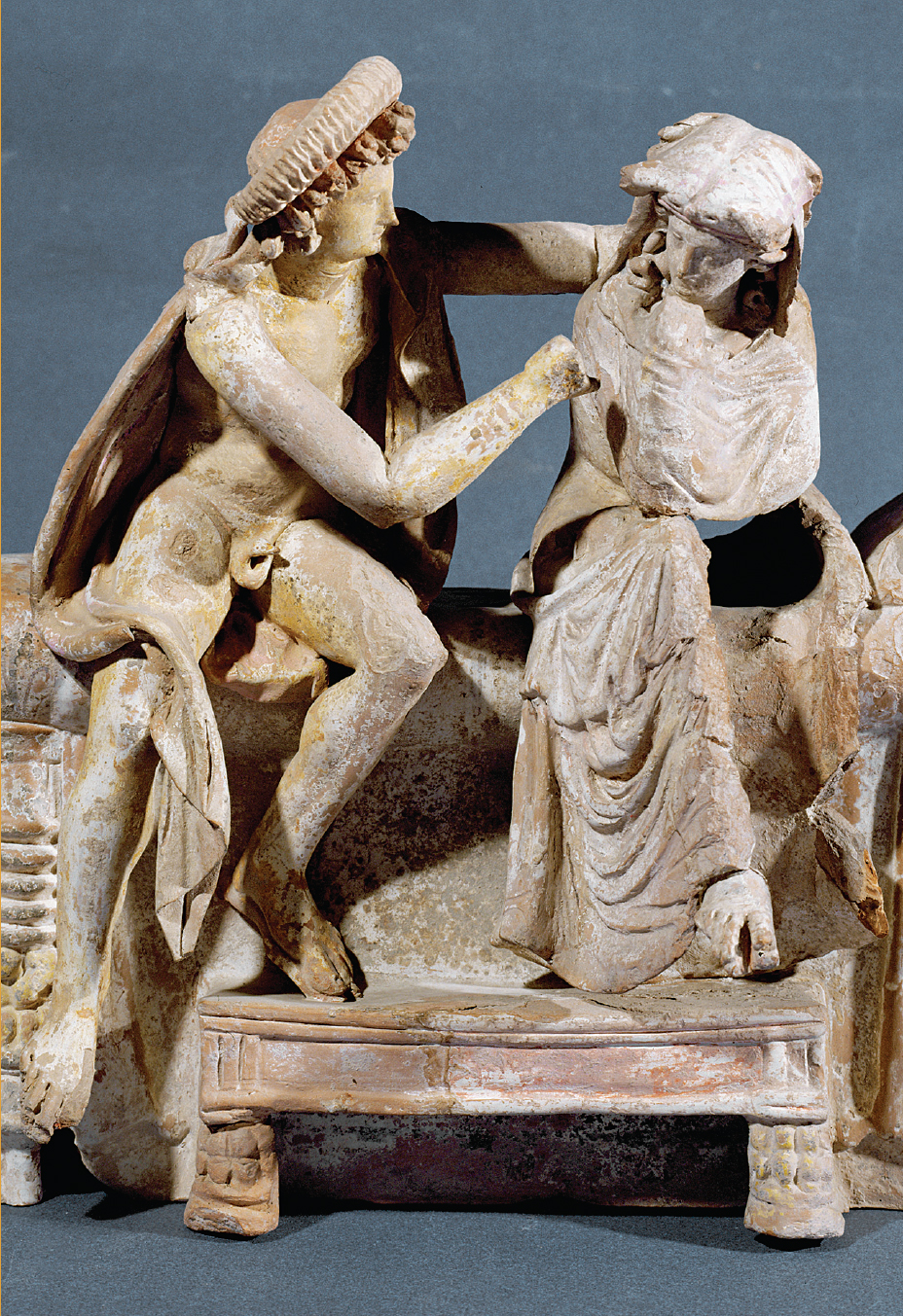Introduction for Chapter 4
4. Life in the Hellenistic World, 336–30 B.C.E.
>How did the Mediterranean world change in the centuries following Alexander’s conquests? Chapter 4 examines the Hellenistic era, the period following the conquests of Alexander the Great in which Greek culture, the Greek language, and Greek thought spread as far as India, blending with local traditions.
In many ways, life in the Hellenistic world was not much different from life in Hellenic Greece: most people continued to be farmers, raising crops and animals for their own needs and to meet their obligations to their superiors. Those who lived in cities, however, often ate foods and drank wine that came from far away, did business with people who were quite unlike them, and adopted religious practices and ways of thinking unknown to their parents. Hellenistic cities thus offer striking parallels to those of today.
LearningCurve
After reading the chapter, use LearningCurve to retain what you’ve read.

>How and why did Alexander the Great create an empire?
>How did Greek ideas and traditions spread?
>What new economic connections were created in the Hellenistic period?
>How did religion and philosophy shape everyday life in the Hellenistic world?
>How did science and medicine serve the needs of Hellenistic society?
| ca. 342– |
323– |
| – Life of comedy writer Menander | – War of succession leads to the establishment of Antigonid, Ptolemaic, and Seleucid dynasties |
| 340– |
ca. 287– |
| – Life of Epicurus, on whose ideas Epicureanism was based | – Life of Archimedes |
| 335– |
ca. 280 B.C.E. |
| – Life of Zeno, on whose ideas Stoicism was based | – Founding of the library of Alexandria by the Ptolemies |
| 334– |
168 B.C.E. |
| – Alexander the Great’s military campaigns | – Roman overthrow of the Antigonid dynasty |
| ca. 330– |
166– |
| – Establishment of new Hellenistic cities | – Revolt of the Maccabees in Judea |
| 323 B.C.E. | 30 B.C.E. |
| – Alexander dies at age thirty- |
– Roman conquest of Egypt; end of the Ptolemaic dynasty |